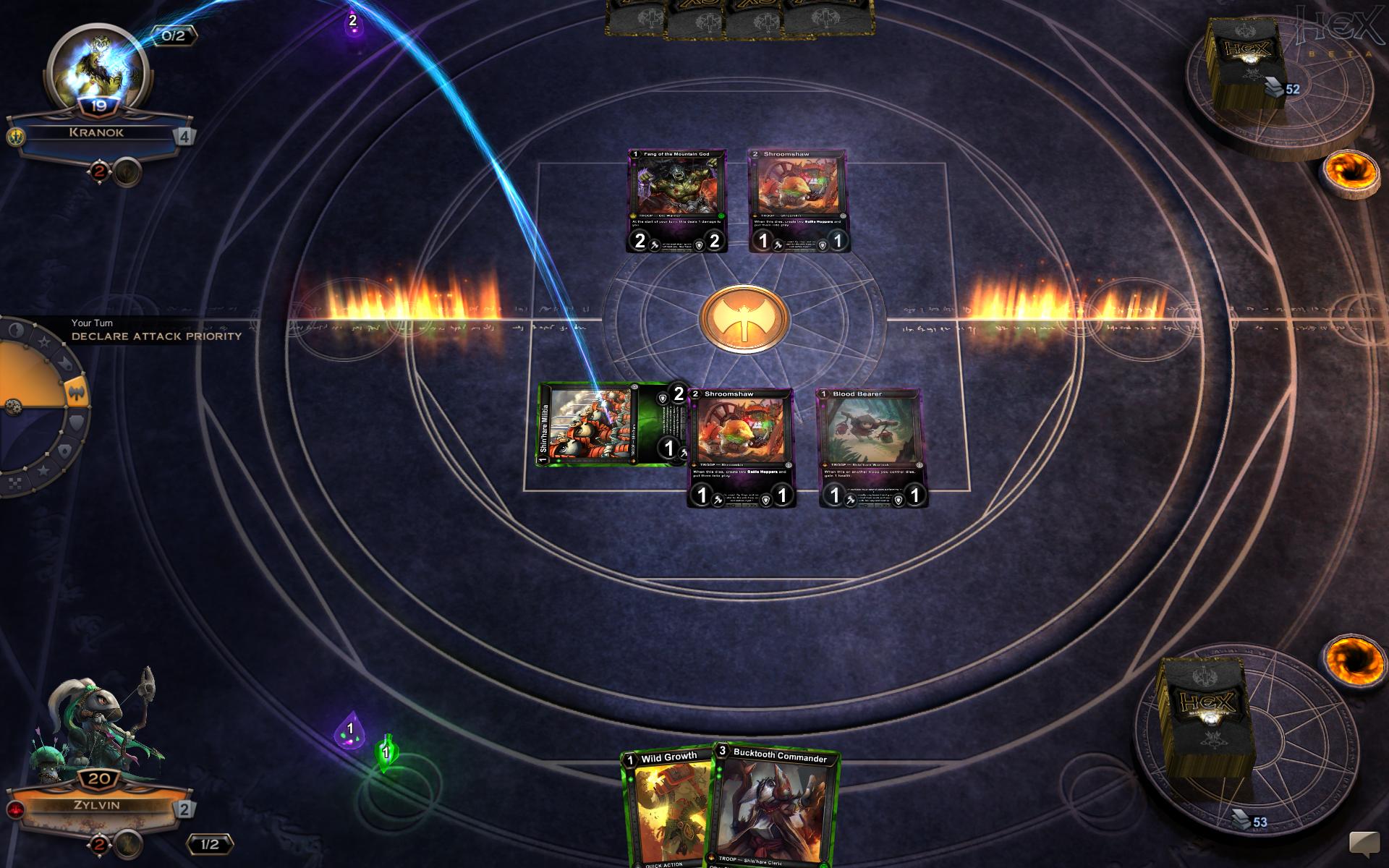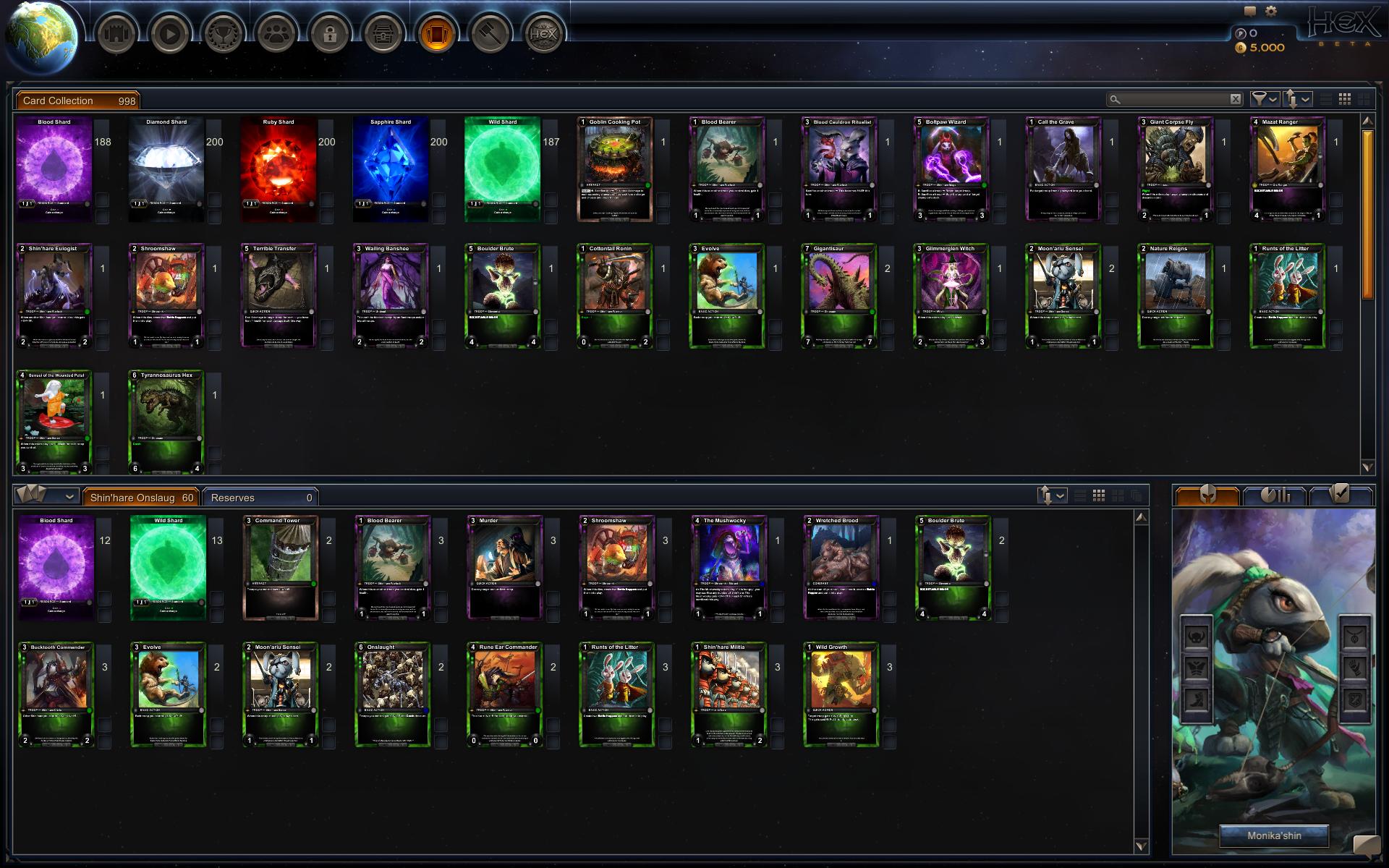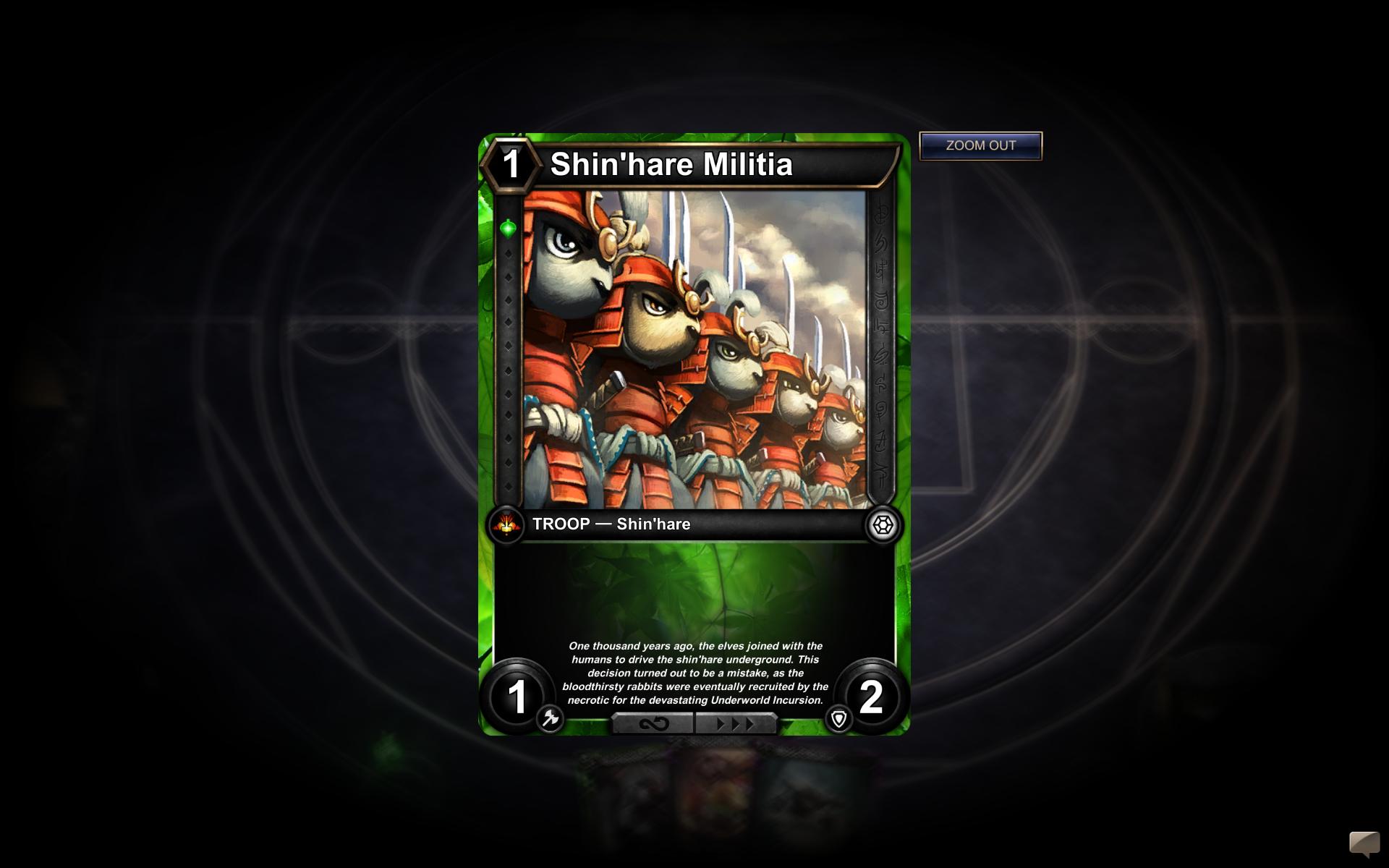
Hex
Hex is a free-to-play CCG currently in open beta that tries harder than any other digital card game I’ve played to emulate the business model used by physical card games. You begin by choosing a race and class, which affects the cards and abilities you start with, and has further implications in the campaign mode, which is yet to be implemented. At present the play options are a standard versus mode and a built-in tournament format
How’s it different?
As far as I can tell, Hex really wants to be Magic: The Gathering, because it plays almost identically. This means it uses 60-card decks, enables you to play cards on your opponent’s turn, its creatures go back to full health at the end of combat, and a lot of other stuff that will feel unfamiliar for Hearthstone players. Combat is one of the biggest points of difference, as you don’t get to choose what your creatures attack. You declare which of your creatures are attacking and your opponent decides which of their creatures will block, or if they’ll just allow the damage through. This means turns take much longer as every time your opponent does something, you get the option to respond.

Click the arrows in the top-right corner to enlarge.
However, Hex isn’t simply digital Magic—which of course already exists, but not in a state that makes it worth mentioning here. In contrast, Hex makes a virtue of the fact that it’s a whole new game designed from the ground up for computer screens rather than tabletops. It introduces a number of complex cards that wouldn’t be realistic in a paper-based CCG—socketed cards that you can customize with different abilities, for example—as well as character powers that function similarly to Hearthstone’s hero powers. It’s an interesting mix of the two games and will definitely please people who think Hearthstone dumbed the formula down too much.
Even with everything that’s going on, Hex has made the battle screen easy to understand. Unique symbols represent each phase of a turn and an icon on the left tells you who currently has priority to make decisions. It can get a little bit confusing when there are a lot of cards on the board, but considering how much is happening at those times it could be a lot worse. The card art has a great style, but the lack of any substantial battle animations makes combat feel flat, especially compared to Hearthstone’s satisfying crunch followed by the roar of the crowd on hard hits.
Probably the most divisive change is how you grow your card collection in Hex. After a few tutorial missions you’re left with some gold and a single booster pack. From there you only have two ways to get new cards: purchase booster packs with real money or bid for specific cards in the auction house with gold. This is no different than how any real world card game works, with the auction house being Hex’s version of a card shop or trading with your friends. If you aren’t planning on spending money on Hex, creating a workable collection will be incredibly slow going.

Why should I play it?
Hex is much more similar to playing a paper card game, meaning it will appeal to the same people who don’t mind buying card packs with actual money in real life. The ability to play cards on your opponent’s turn gives Hex a lot of the extra strategy that people complain is missing from Hearthstone, but the game moves much more slowly as a result. There’s a huge amount of depth to discover here, but the process of collecting enough cards and learning the systems might be too exhausting for those looking to just relax.
Hex is free-to-play and can be downloaded from its official site.
The biggest gaming news, reviews and hardware deals
Keep up to date with the most important stories and the best deals, as picked by the PC Gamer team.


